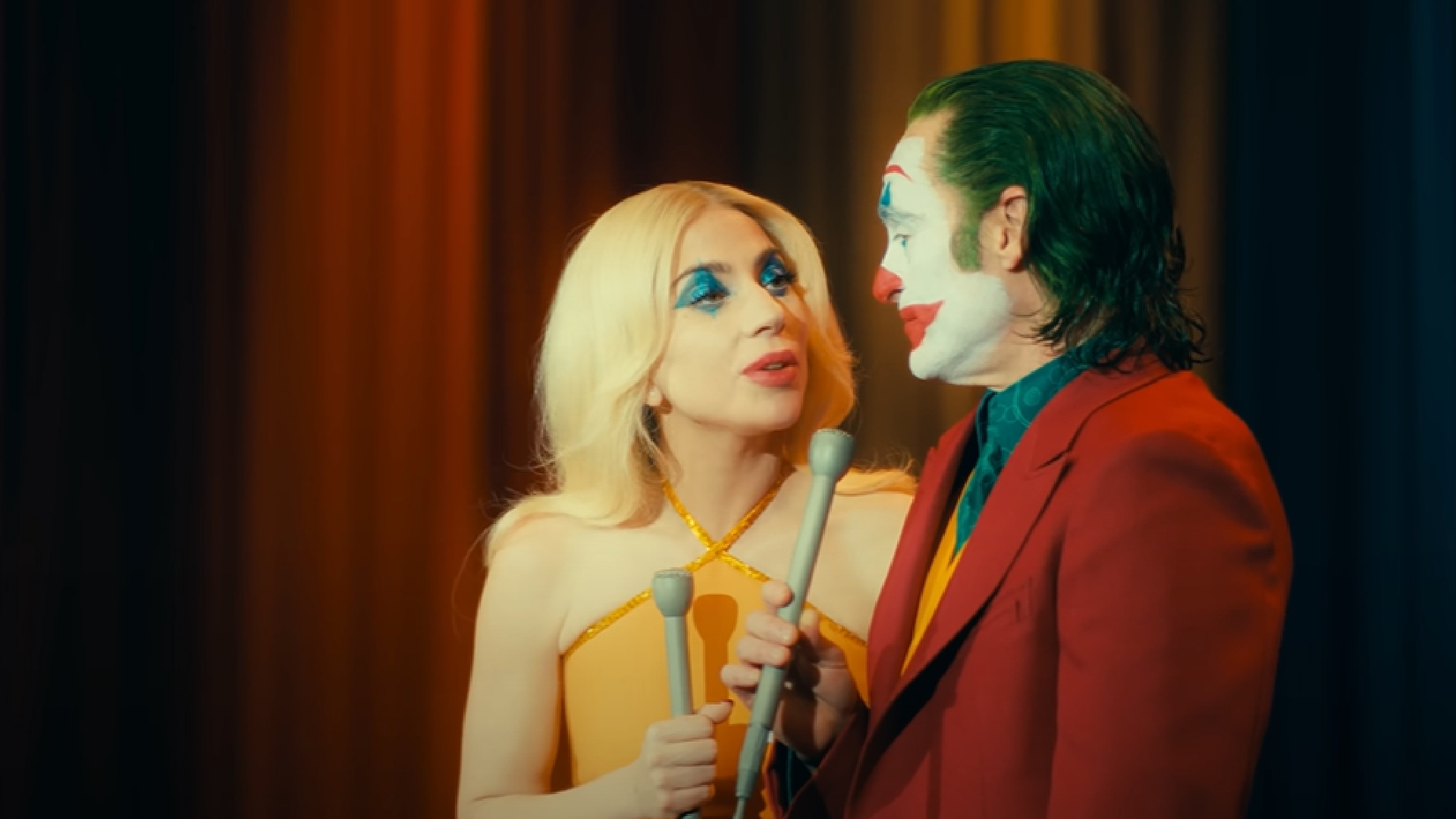
Warning: This article contains major spoilers for Joker: Folie à Deux.
Put on a happy face, Joker: Folie à Deux is finally out in theaters. The long-awaited sequel starring Joaquin Phoenix and Lady Gaga as Joker and Harley Quinn is finally here, and boy does it pack a punch. Picking up after Arthur Fleck’s very public assassination of Murray Franklin, Joker 2 finds him in Arkham State Hospital awaiting trial. There, he meets an enigmatic inmate called Lee who brings him out of his shell and encourages him to embrace the Joker moniker.
The sequel ends up as something between a drama and a musical with break-out dance sequences and songs from its leads. Packed in here are loads of Hollywood references, as well as plenty of wider comic book and pop culture nods too. We’ve compiled a complete guide of these below, rounding up all of the Joker: Folie à Deux Easter eggs we could find. Check out the references below.
While you’re at it, take a look at our Joker: Folie à Deux ending explained and our guide to if a Joker 3 is on the cards too.
Cartoons
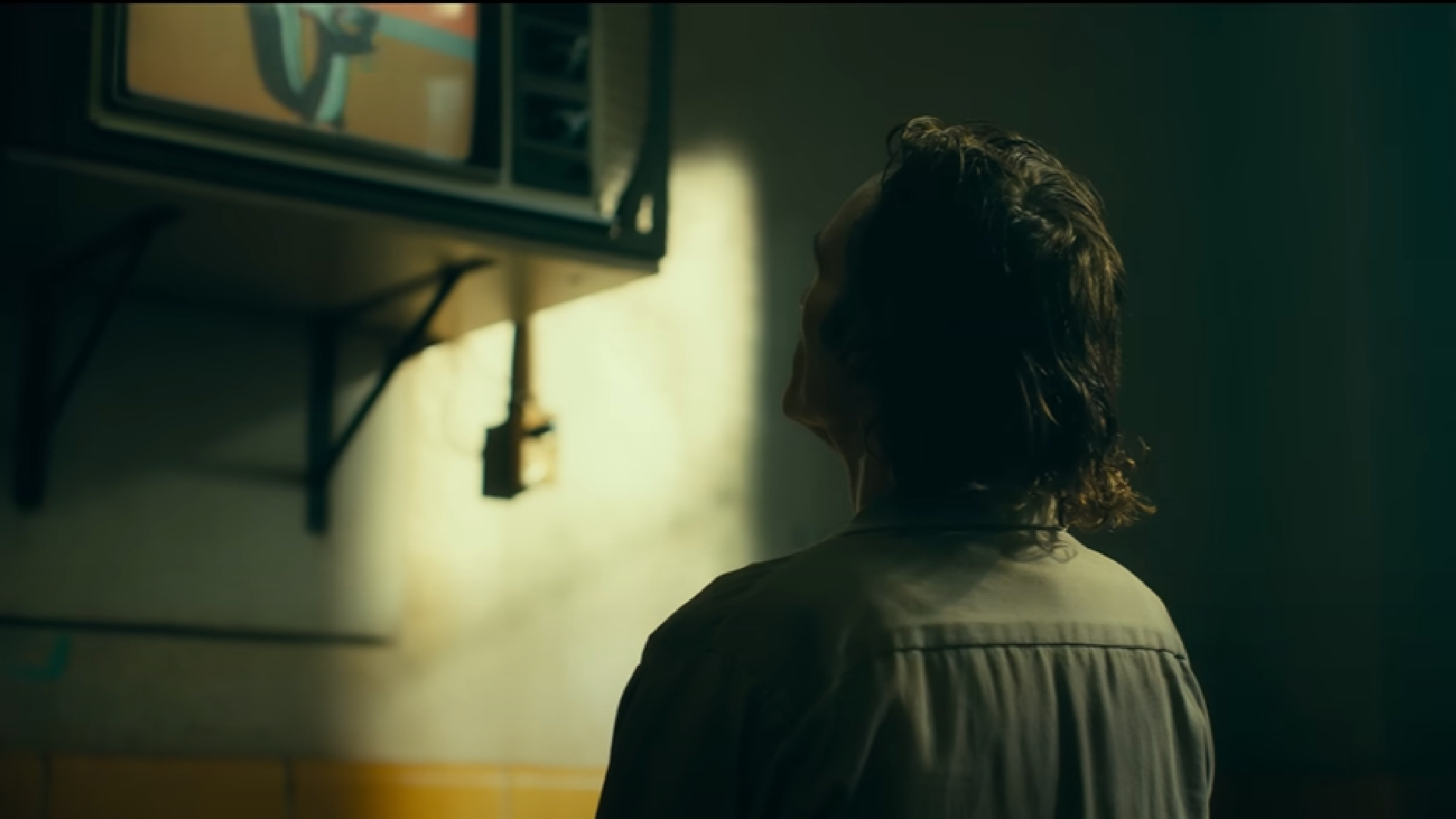
Cartoons play a key role in Joker: Folie à Deux right from the very beginning, which starts with a Looney Tunes-style recreation of Arthur’s assassination of Murray. The references don’t stop there with TVs constantly playing Looney Tunes in the background of most of the film, including several episodes of Pepé Le Pew, whose constant search for love and romance feels like an on-the-nose reference for Arthur. In the court scene later in the movie, Arthur even quotes the Looney Tunes iconic sign-off (frequently uttered by Porky Pig), telling the room, "That’s all, folks!"
Classic Hollywood
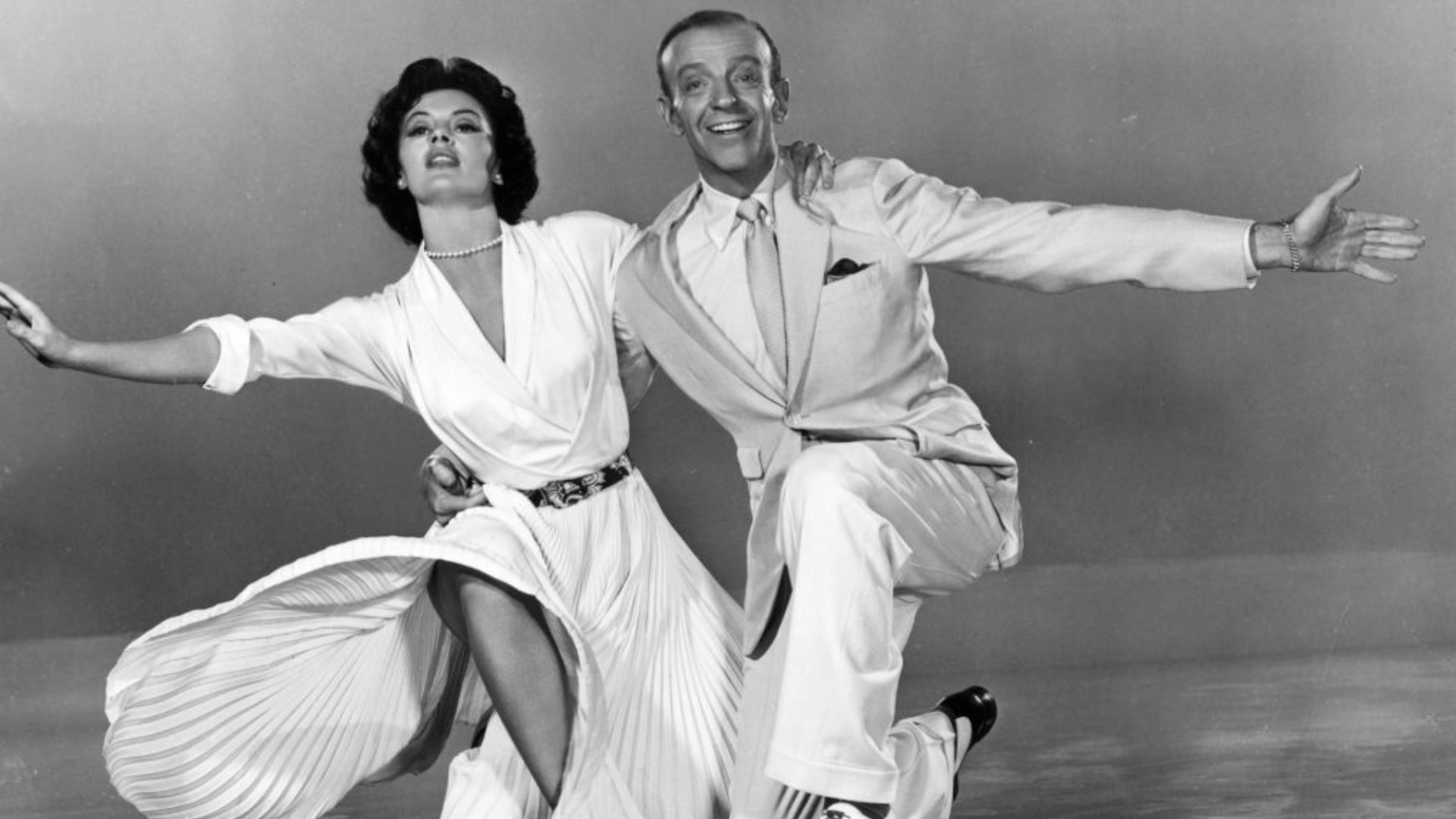
Several of the dance and singing sequences feel pulled straight out of Old Hollywood movies, and Joker: Folie à Deux has plenty of references throughout. In the short animation at the beginning, some classics are seen on posters including My Pal Joey, Sweet Charity, and a Charlie Chaplin film. Later on in the movie, Arthur, Lee and the Arkham inmates watch The Band Wagon in the prison screening room. Lee sings ‘That's Entertainment!’ from the musical, as well in a pivotal scene on the Joker steps.
Umbrellas
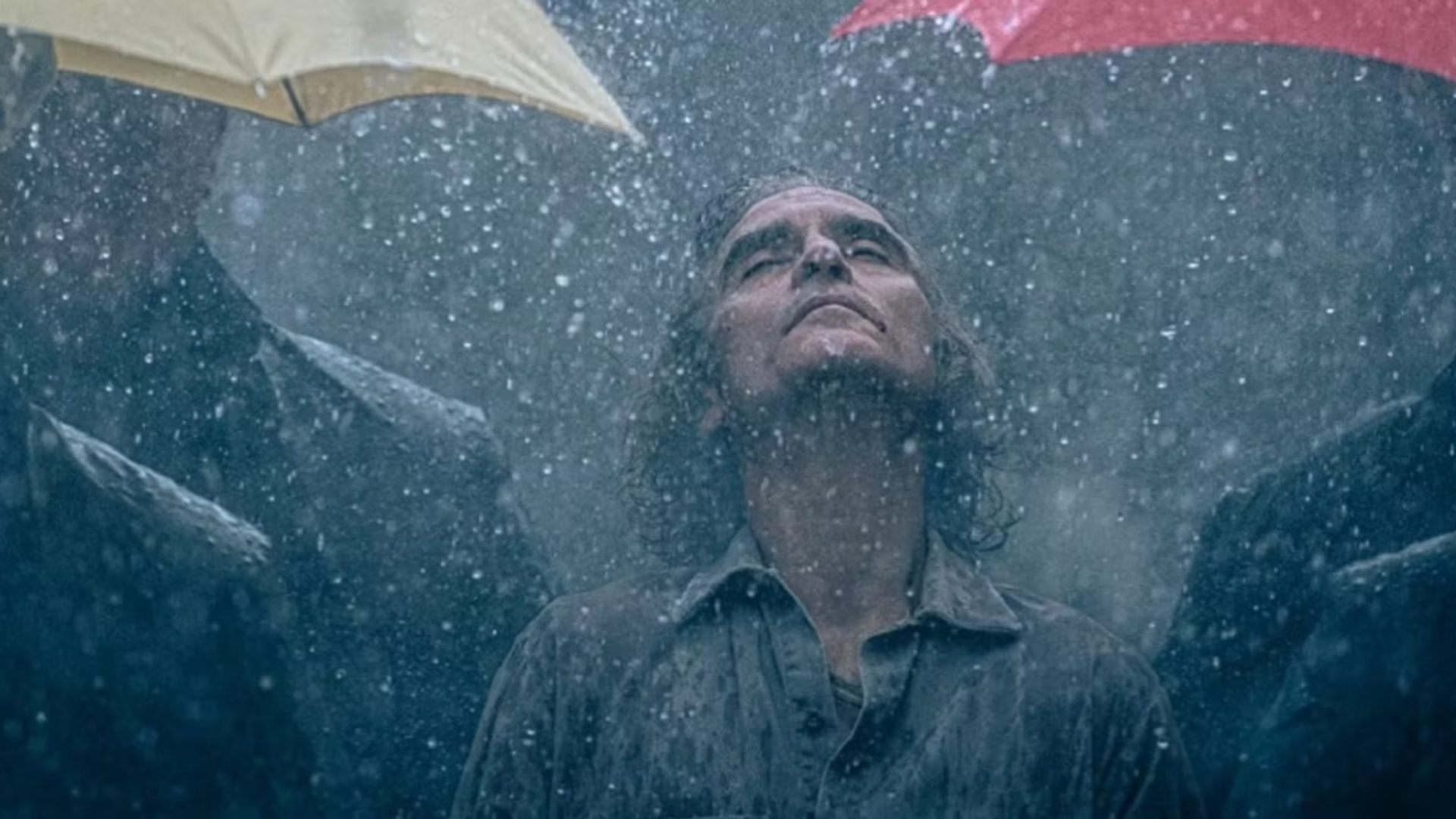
One of the clearest moments of Arthur’s delusion comes when he’s walking through Arkham State Hospital to meet with his lawyer. From one shot face-on, it’s clear all of the umbrellas are black, but when he looks up, they’re multi-colored. This shot is a reference to the 1964 French musical The Umbrellas of Cherbourg.
Wayne Towers
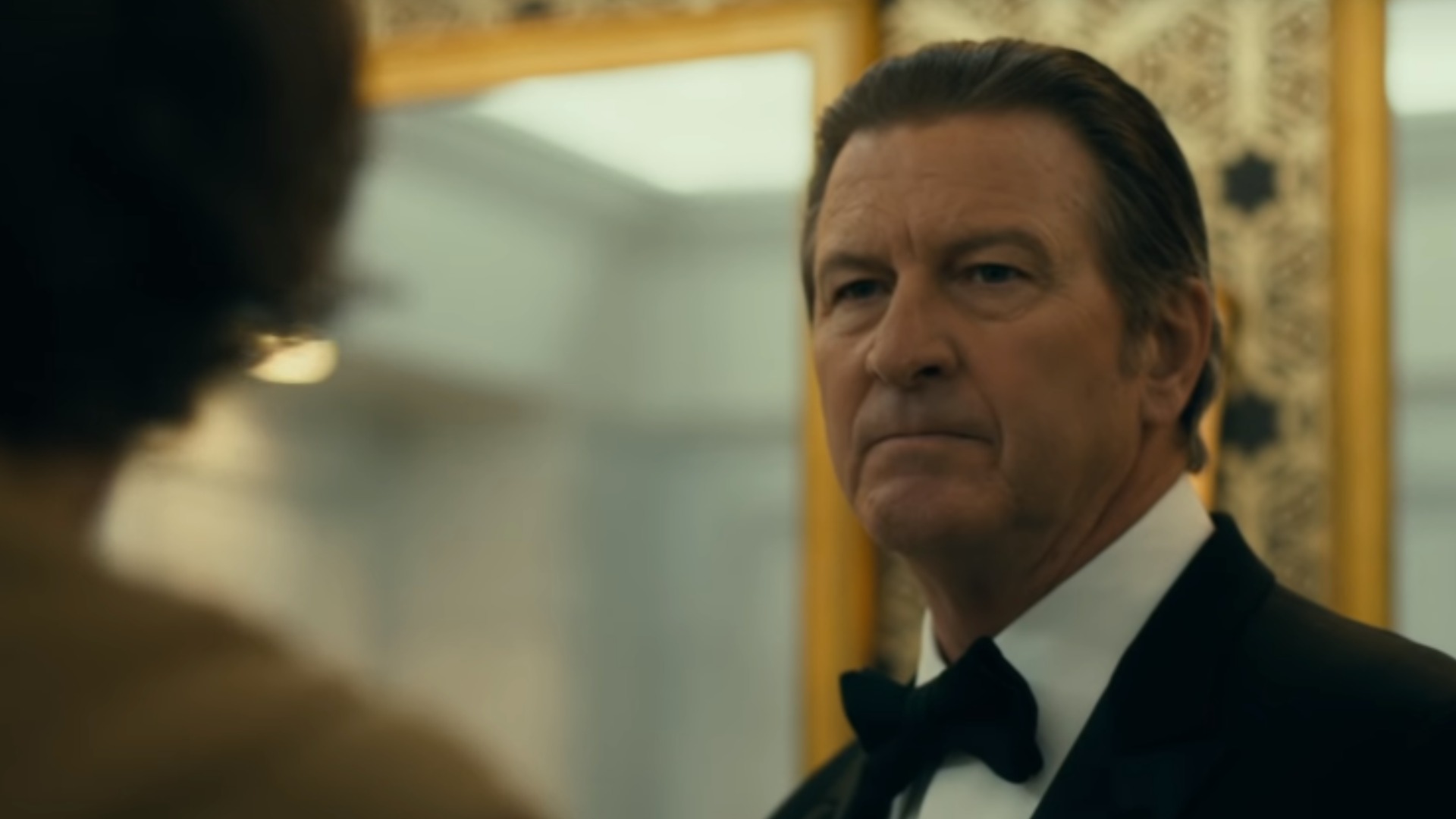
When Arthur is being driven to the Gotham Courthouse, the Wayne building can be seen on the Gotham skyline. Thomas Wayne appeared in the first Joker film with Arthur’s mother Penny Fleck working for him for many years as a housekeeper. For a while Arthur believed Thomas was his father, even approaching Wayne Manor and speaking to a young Bruce Wayne before he realized his mother was lying to him.
Richard Nixon
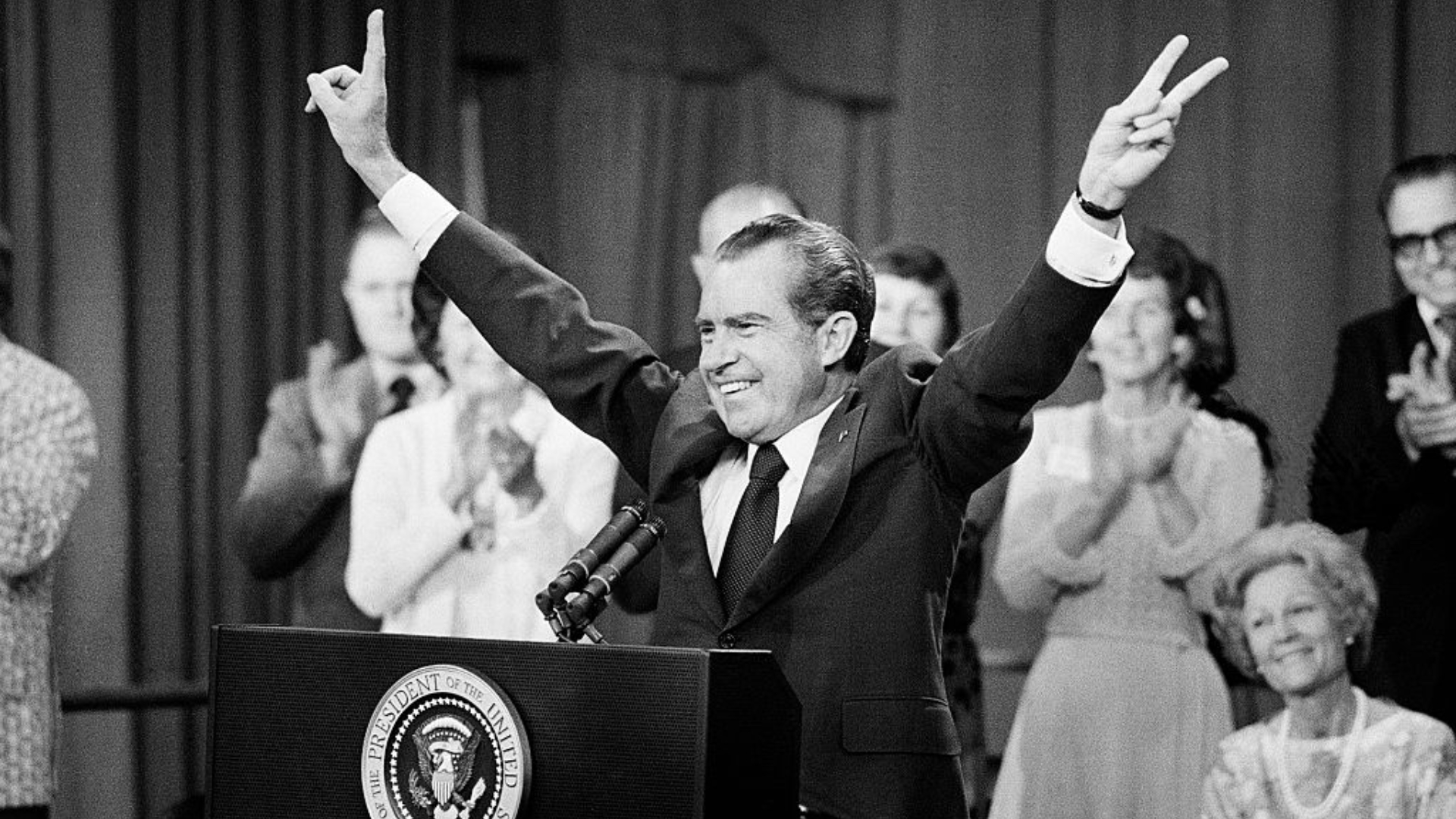
When he’s in court for the first time, Arthur does the classic Richard Nixon peace sign, holding up two hands to his supporters. It’s something the former president did when he resigned after Watergate.
The title
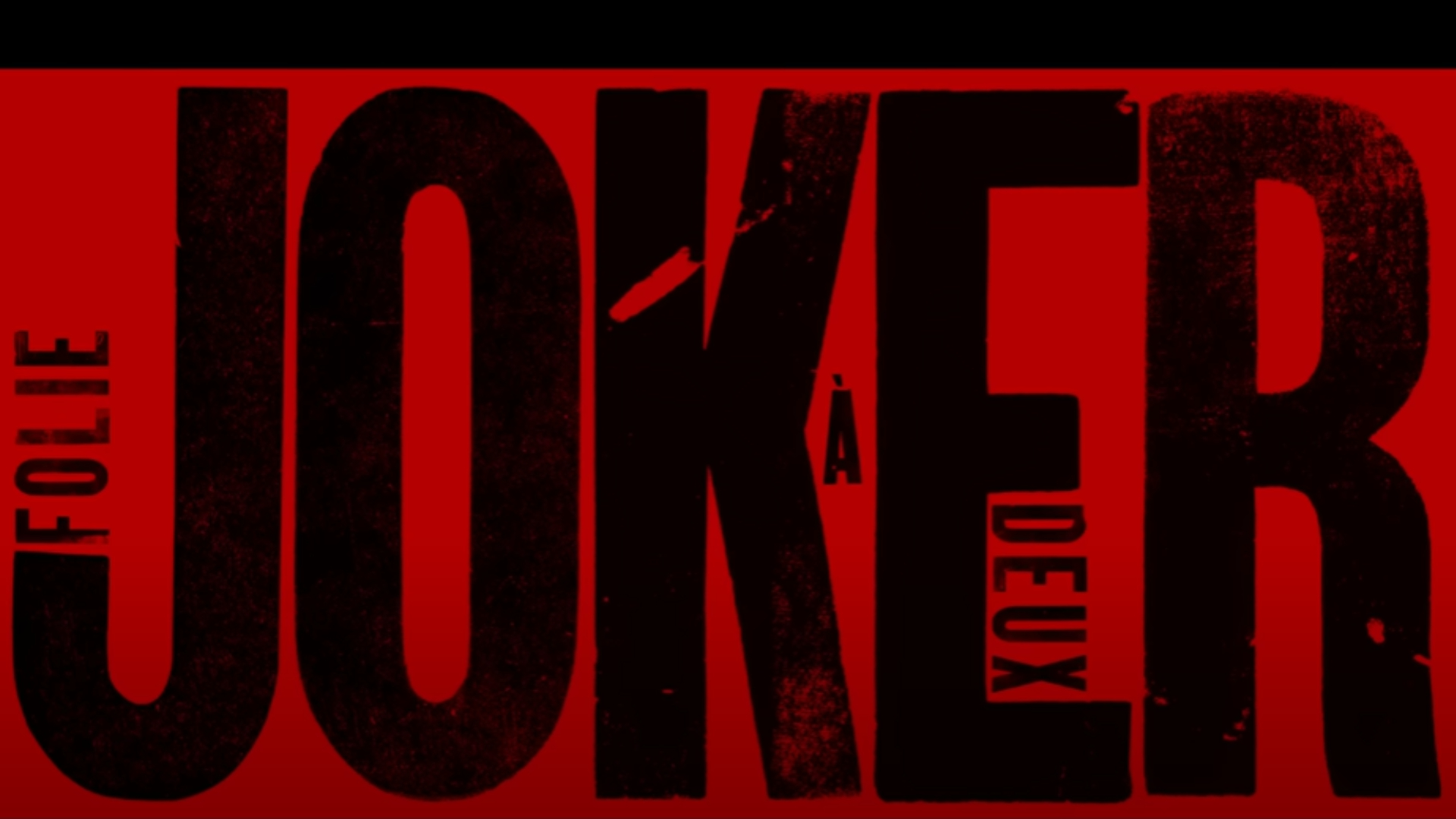
Folie à Deux translates to “madness of two” and is a psychiatric disorder about shared delusion. Throughout the movie, this is what Harley and Joker engage in, drifting into shared, fantastical musical sequences.
Sophie Dumond
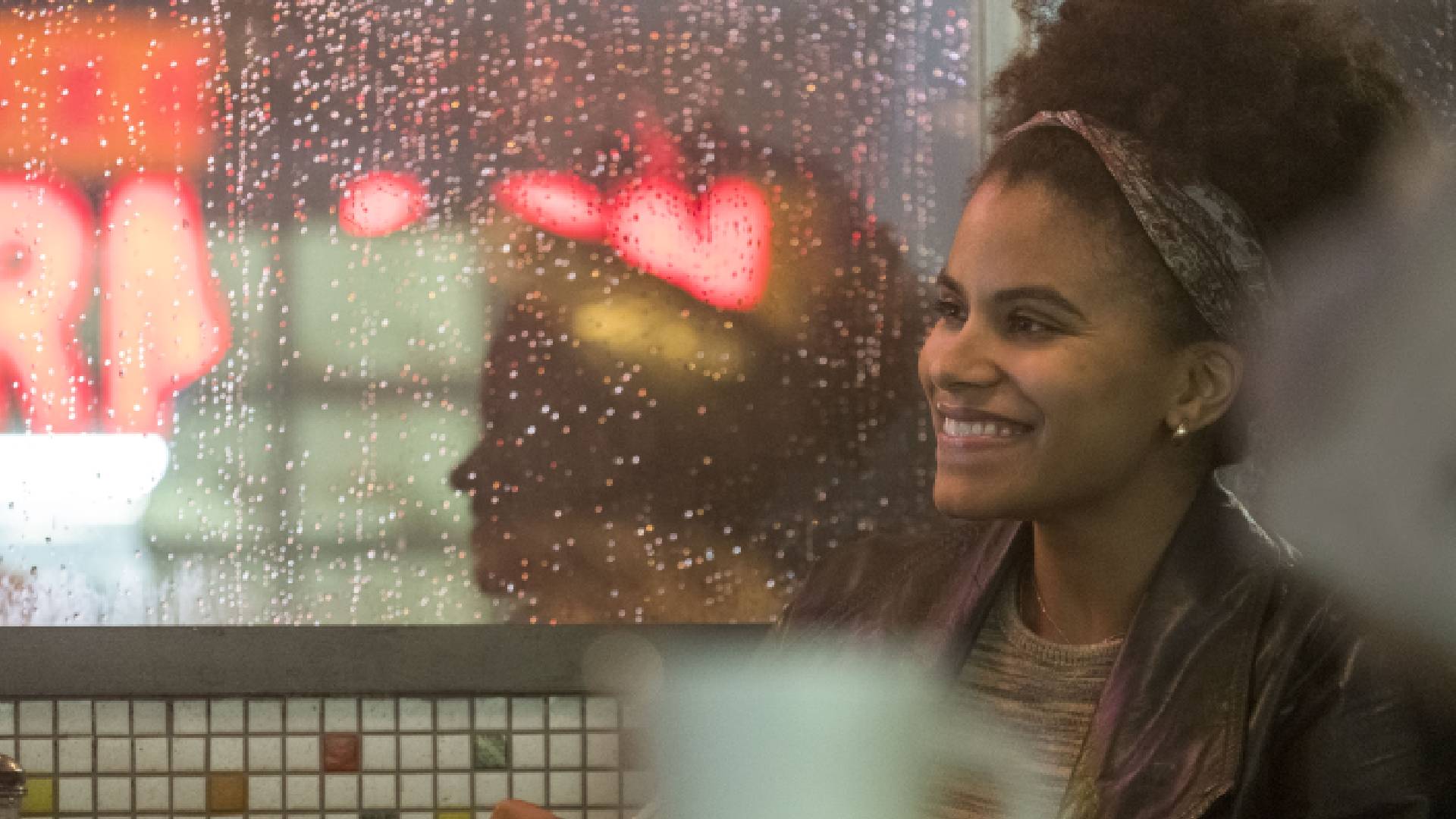
Zazie Beetz returns for a cameo in the court scene of Joker: Folie à Deux, giving testimony on Arthur being her neighbor. During her questioning, she says that Arthur was having a “bad day” when she found him in her apartment. This is a quote from The Killing Joke comic, where the Joker says it just takes one bad day to turn into someone like him.
Harley Quinn
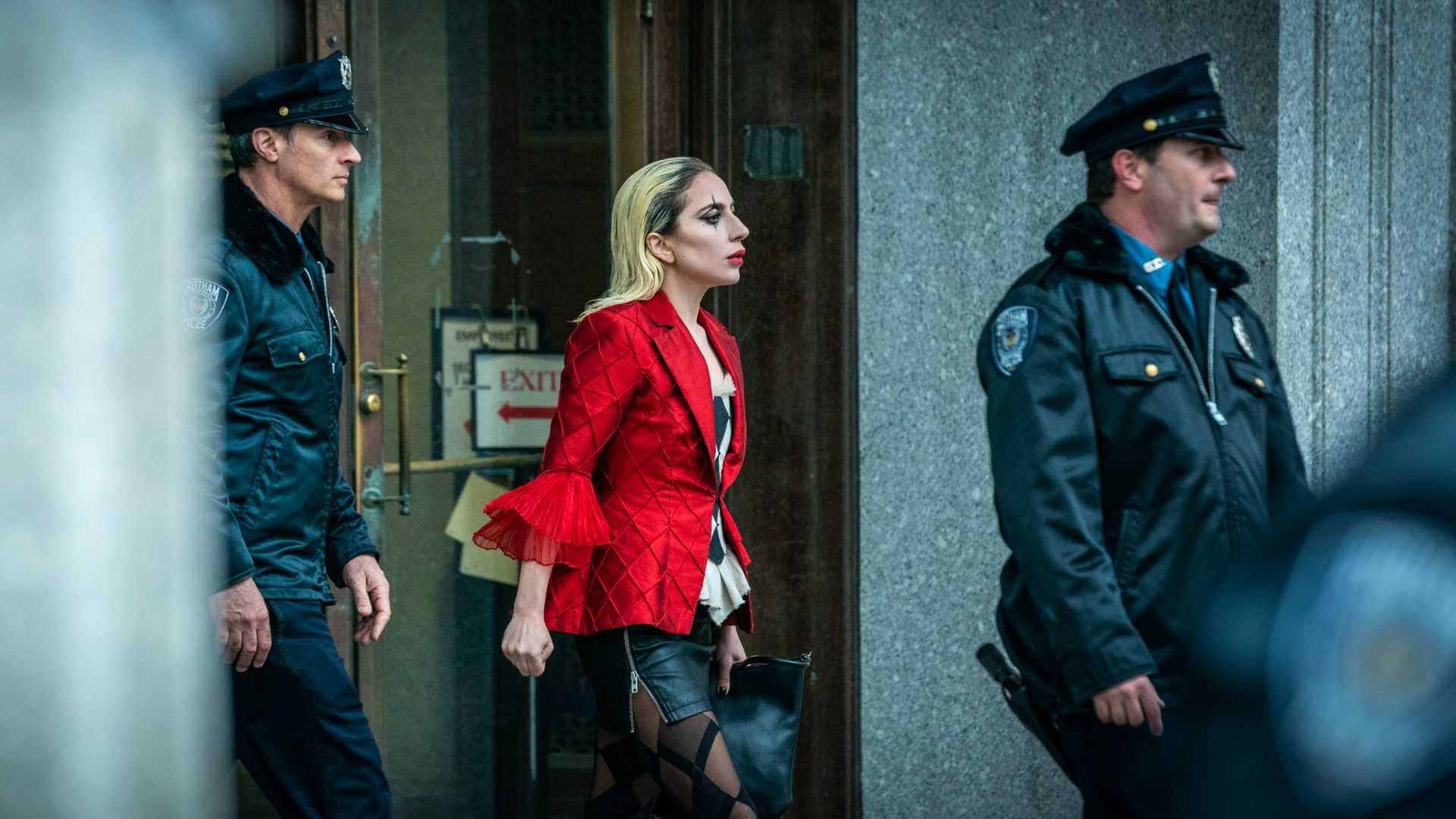
Joker’s version of infamous Batman villain Harley Quinn is pretty different from her comic book origins as she’s an inmate at Arkham State Hospital in this one. However, there are a few nods to her comic background as it’s revealed that she studied psychiatry at college. Usually, she appears as Dr. Harleen Frances Quinzel who works at Arkham where she first meets Joker as a patient.
Gene Ufland
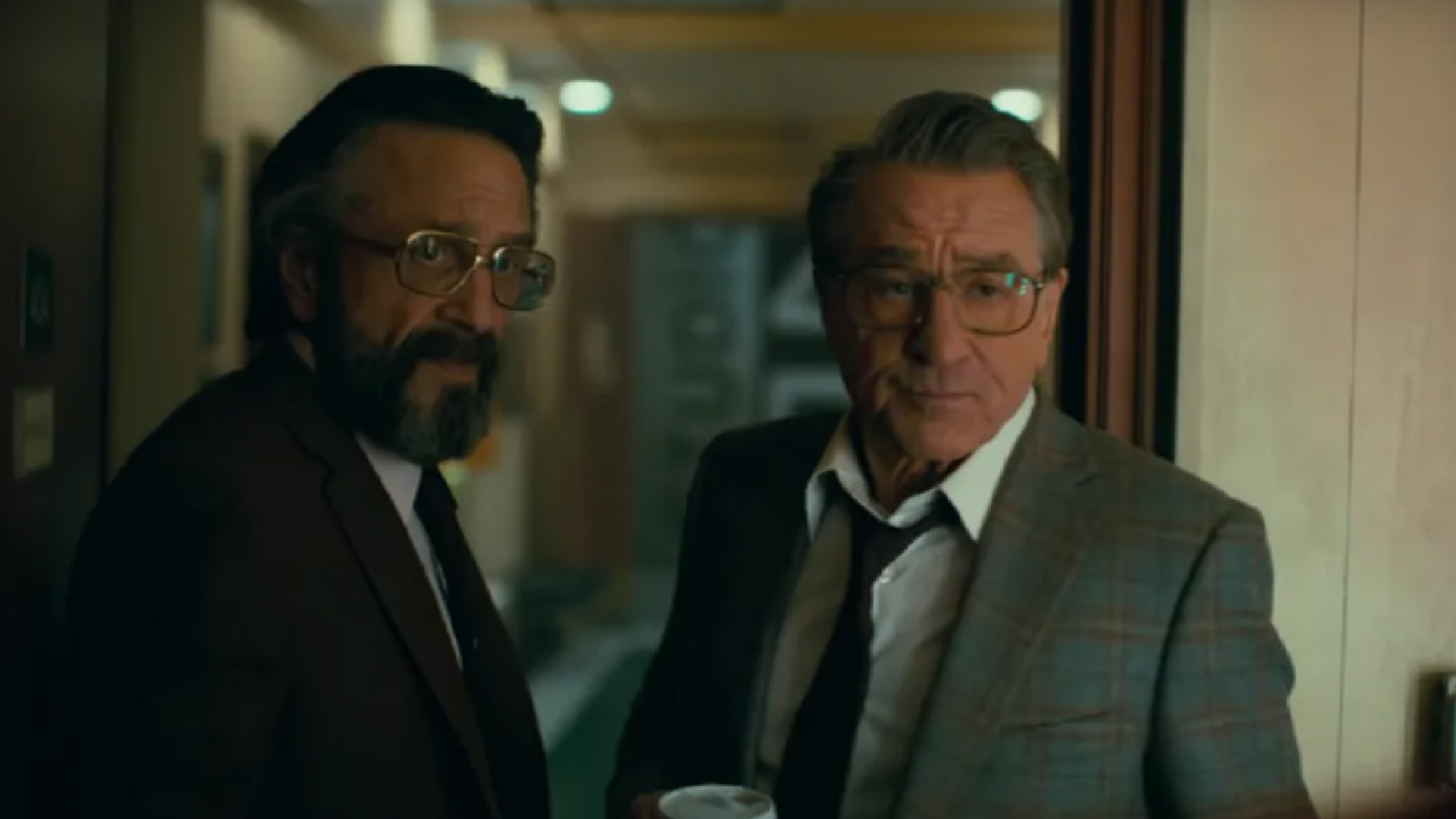
At one point, a prison guard asks Arthur to sign a book ('The Night the Laughter Died') about the Murray Franklin murder. This is written by Gene Ufland, who was played by Marc Maron in the first film. Ufland was a producer on Murray’s show and was there for his on-air murder.
Arkham Bridge
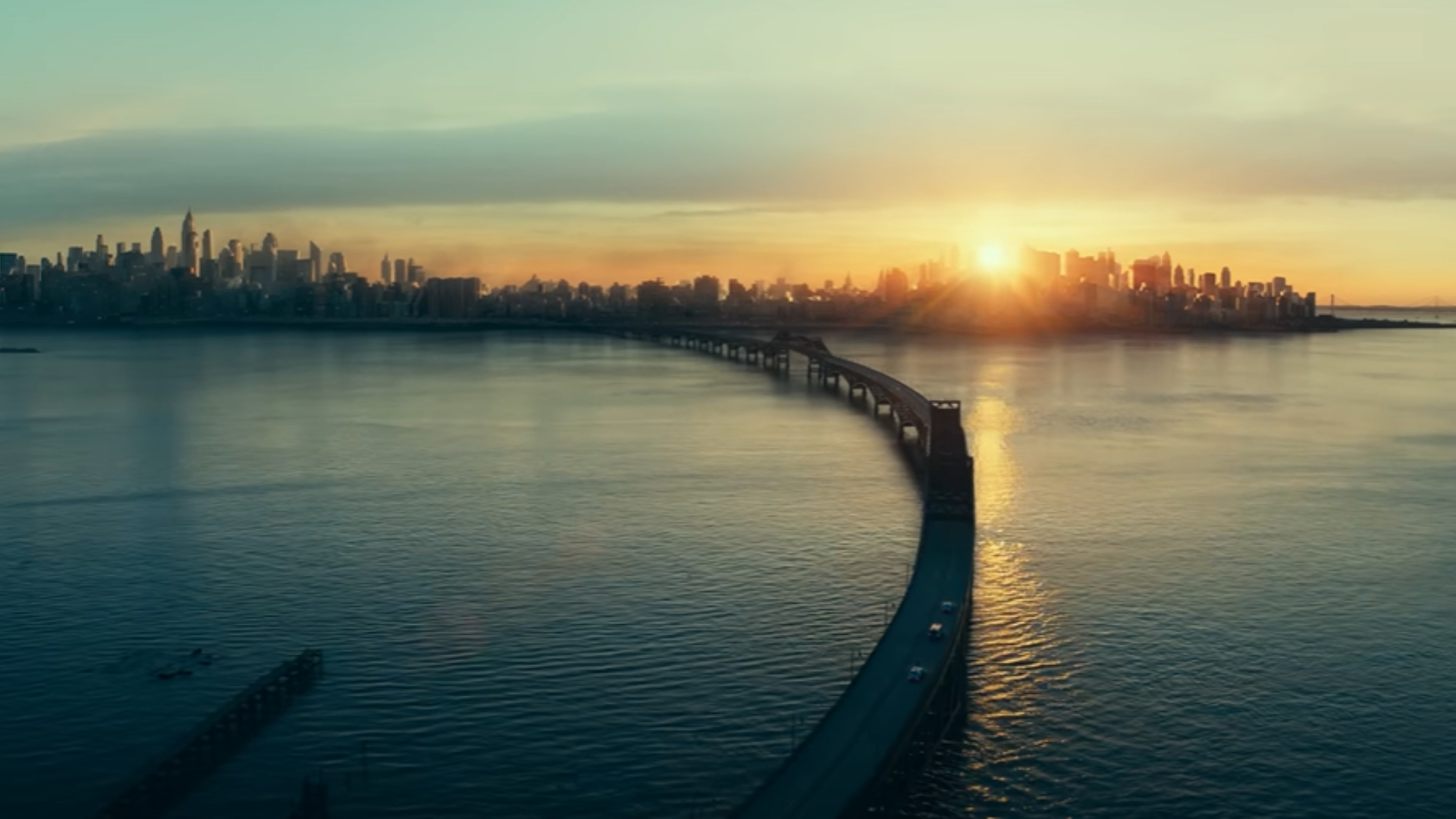
In Joker: Folie à Deux, there’s a clear bridge connecting Arkham Island to Gotham mainland. This is a staple of many Batman adaptations, including Arkham Origins.
Gary Puddles
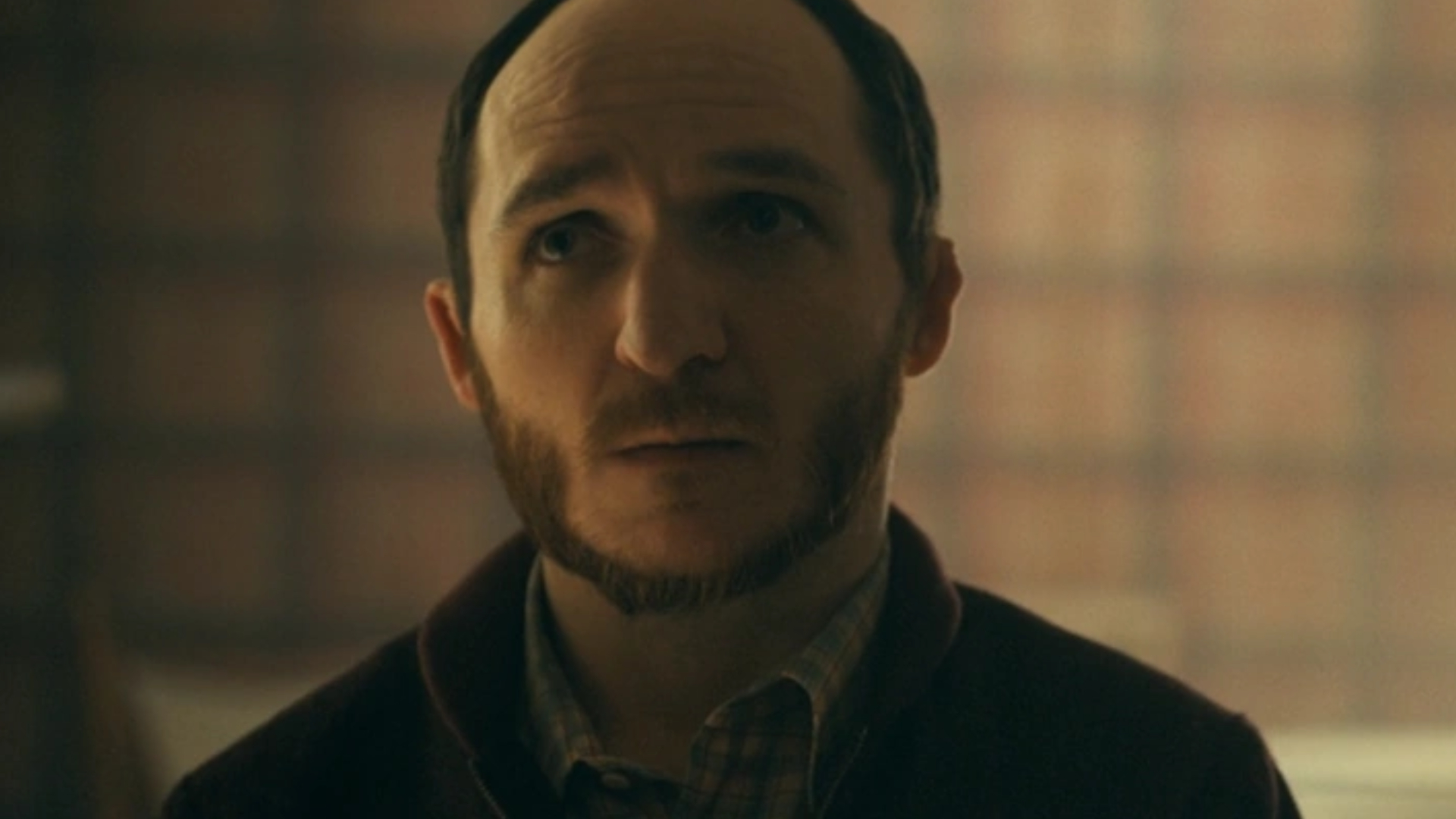
Another returning character is Gary Puddles who is brought in by Harvey Dent. He testifies against Joker in the courtroom scene and is particularly impacted by Arthur’s murder of their colleague Randall.
Gotham City Yellow Pages
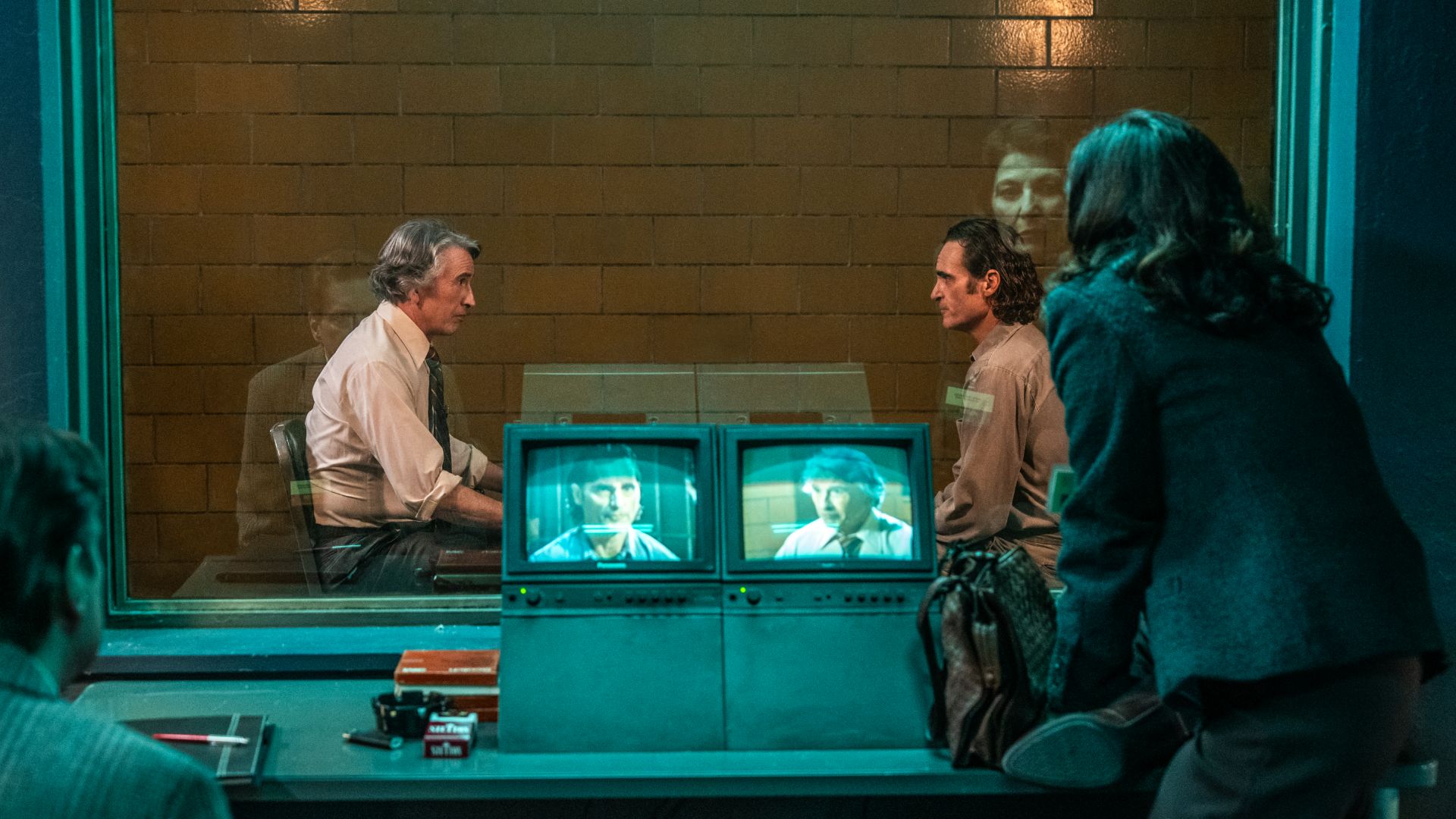
In the courtroom, Gary is sitting on the Gotham City Yellow Pages. This seems like a nod to Tim Burton’s Batman Returns, which featured these as a prop too.
Pogo's
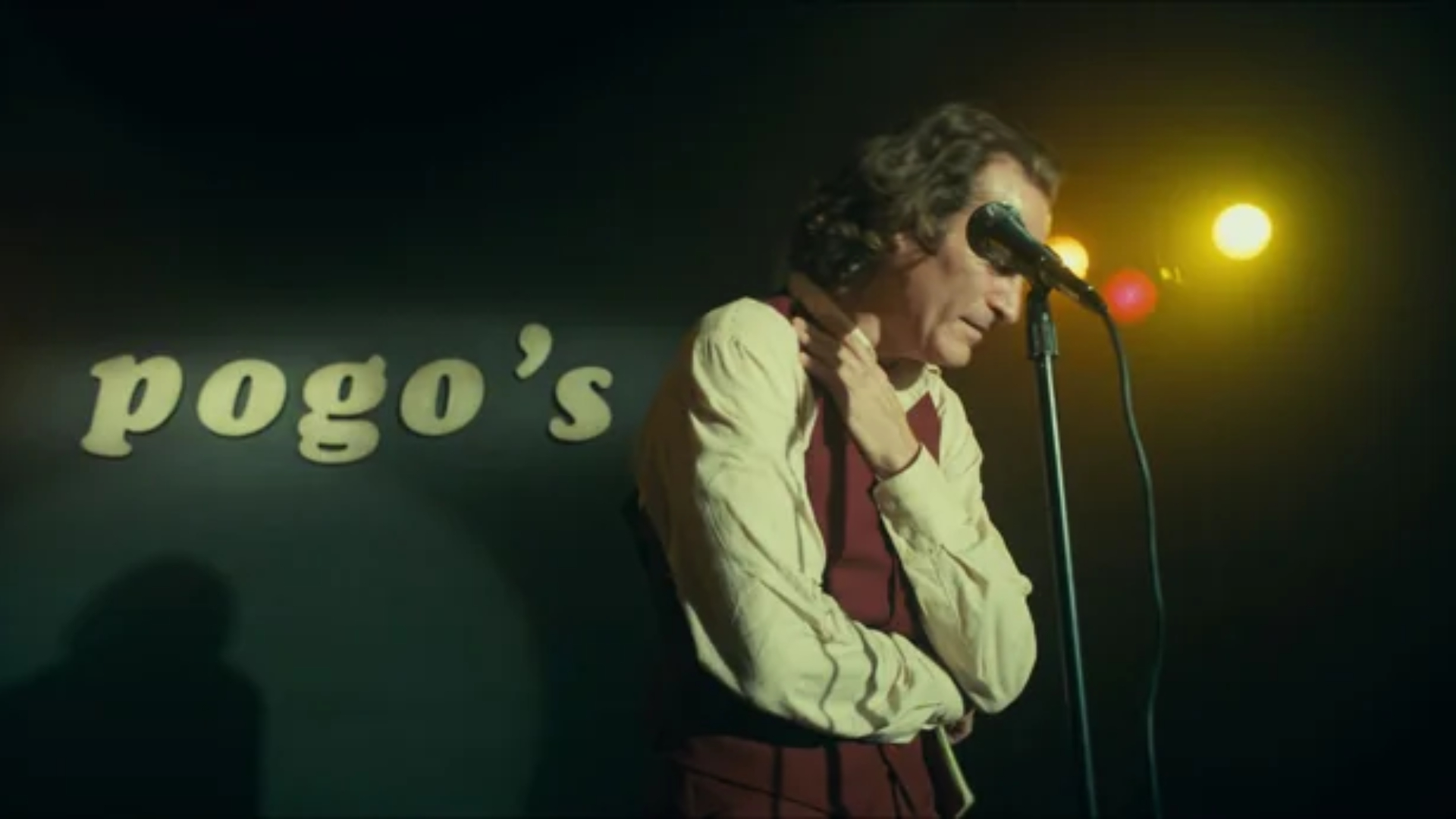
This is the comedy club where Arthur performs in the first movie, and it appears again in one of his fantasy sequences with Harley. The name is lit up in the backdrop of their scene.
Music
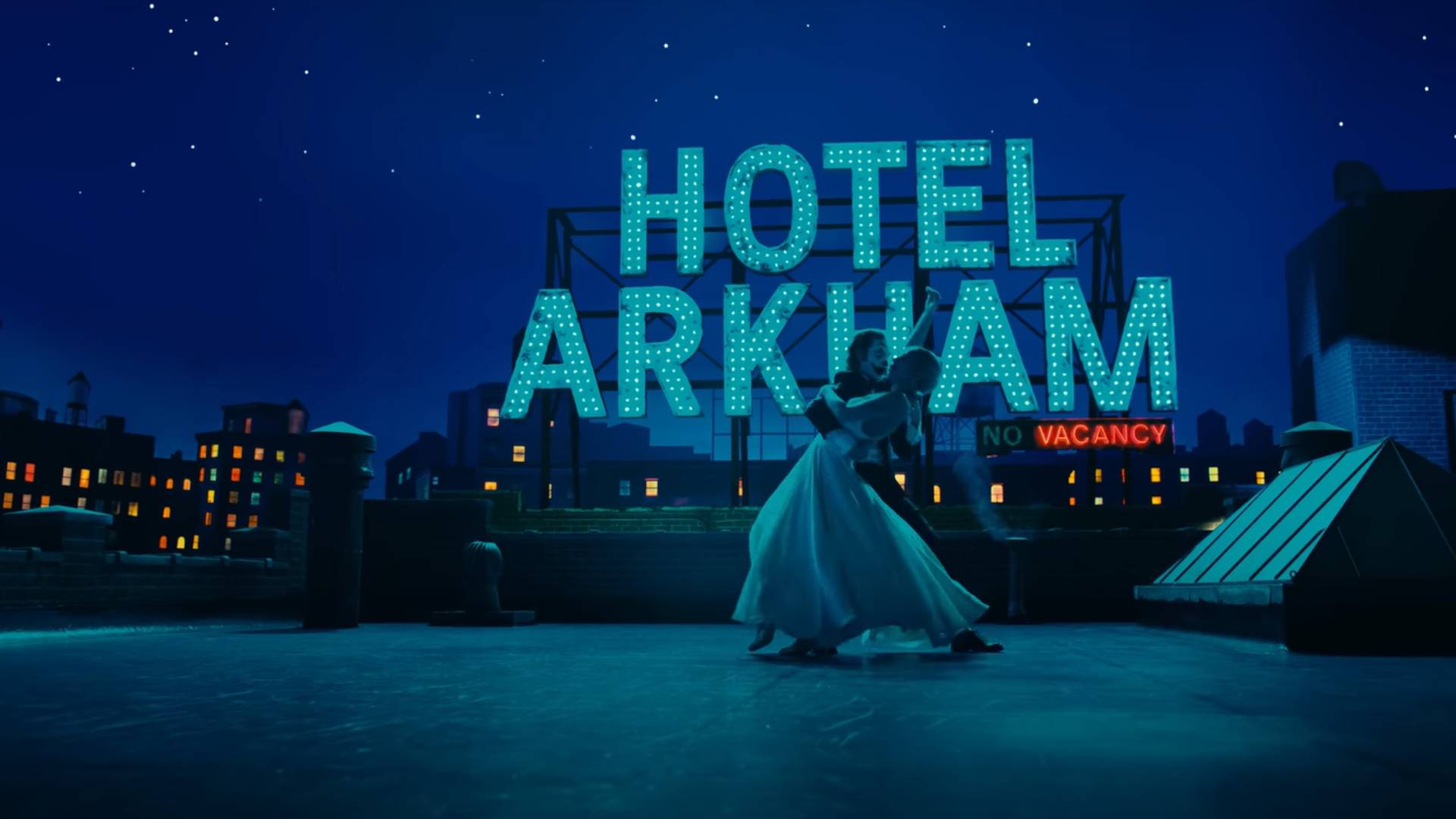
Music is a huge part of the sequel, with Joker and Harley covering many classic songs. Among those they sing are ‘That’s Life’, ‘Get Happy’, ‘For Once in My Life’, and ‘What the World Needs Now Is Love’.
A Bucket of Blood
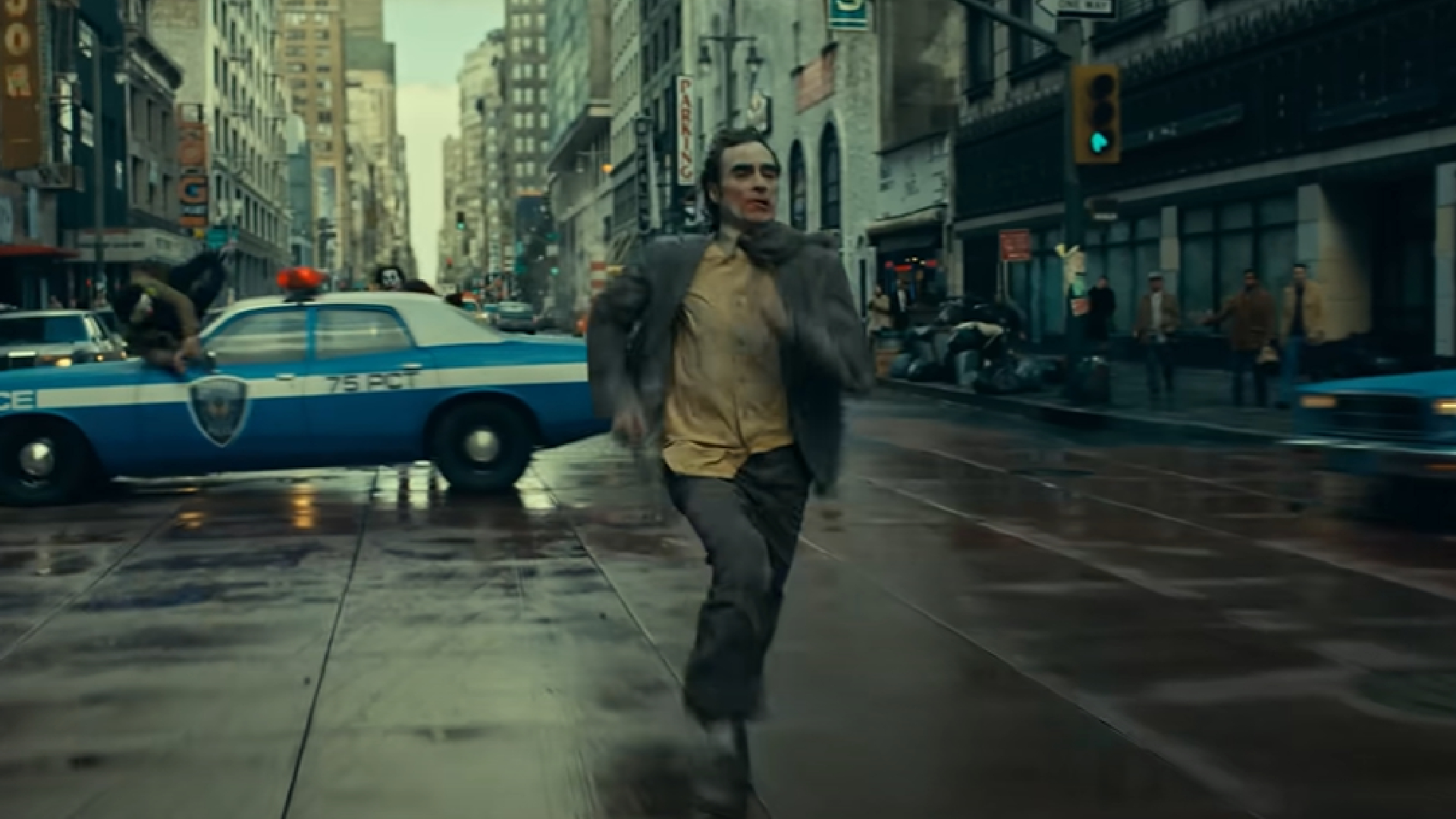
The film A Bucket of Blood is playing at the Roxie movie theater when Arthur is running through Gotham at the end. It’s a comedy horror about someone who wants to make human sculptures out of dead bodies.
Arthur's death
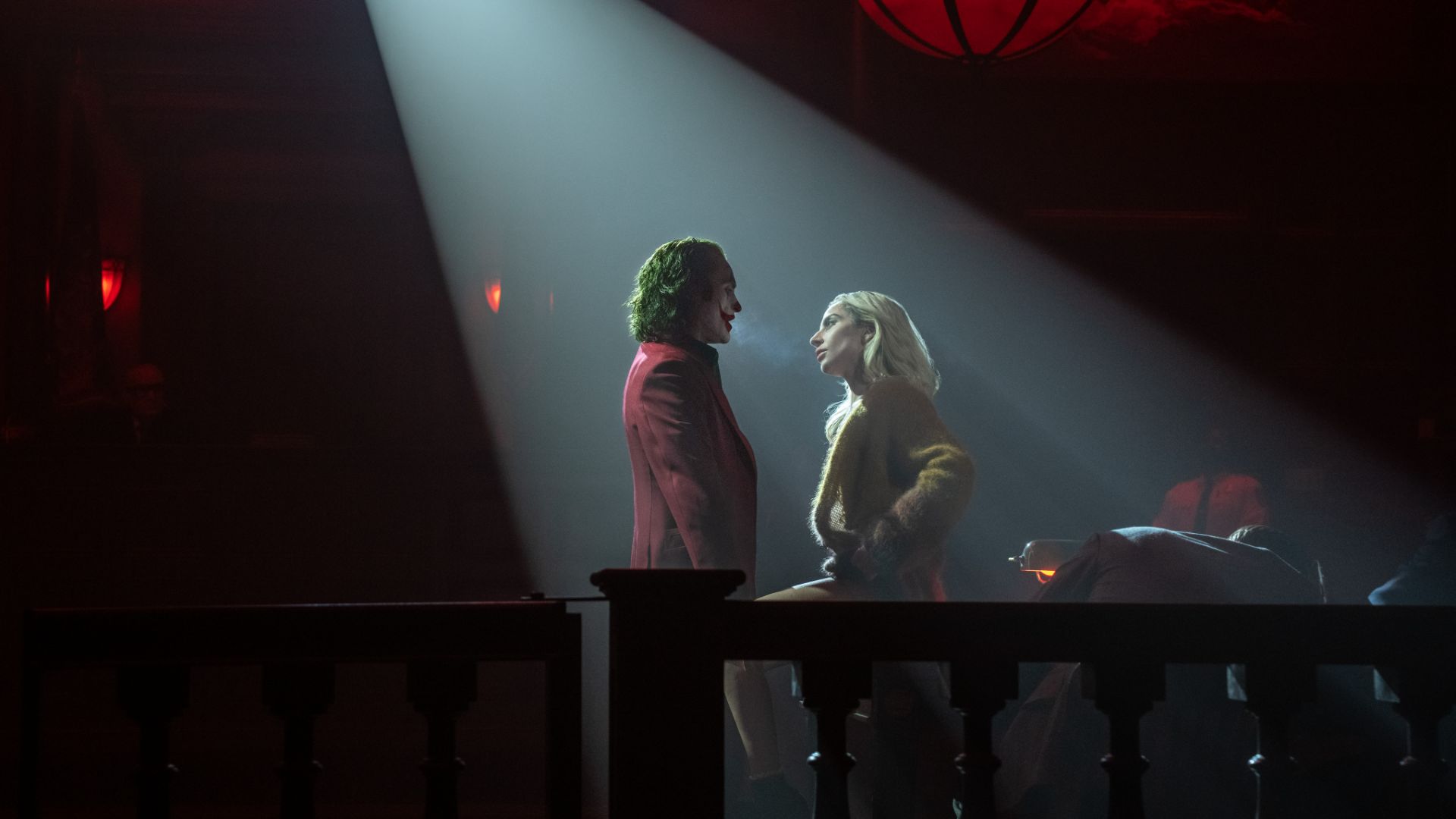
The person who stabs him tells him that it’s “what you fucking deserve” echoing the words Arthur said to Murray when he killed him. Just before he shoots him, Arthur goes on a rant about how society treats people who are different before he shouts, “You get what you fucking deserve”. The cycle continues. Fittingly, the first song we hear in the movie from the class on Ward B is the hymn 'Will The Circle Be Unbroken?'
New Joker
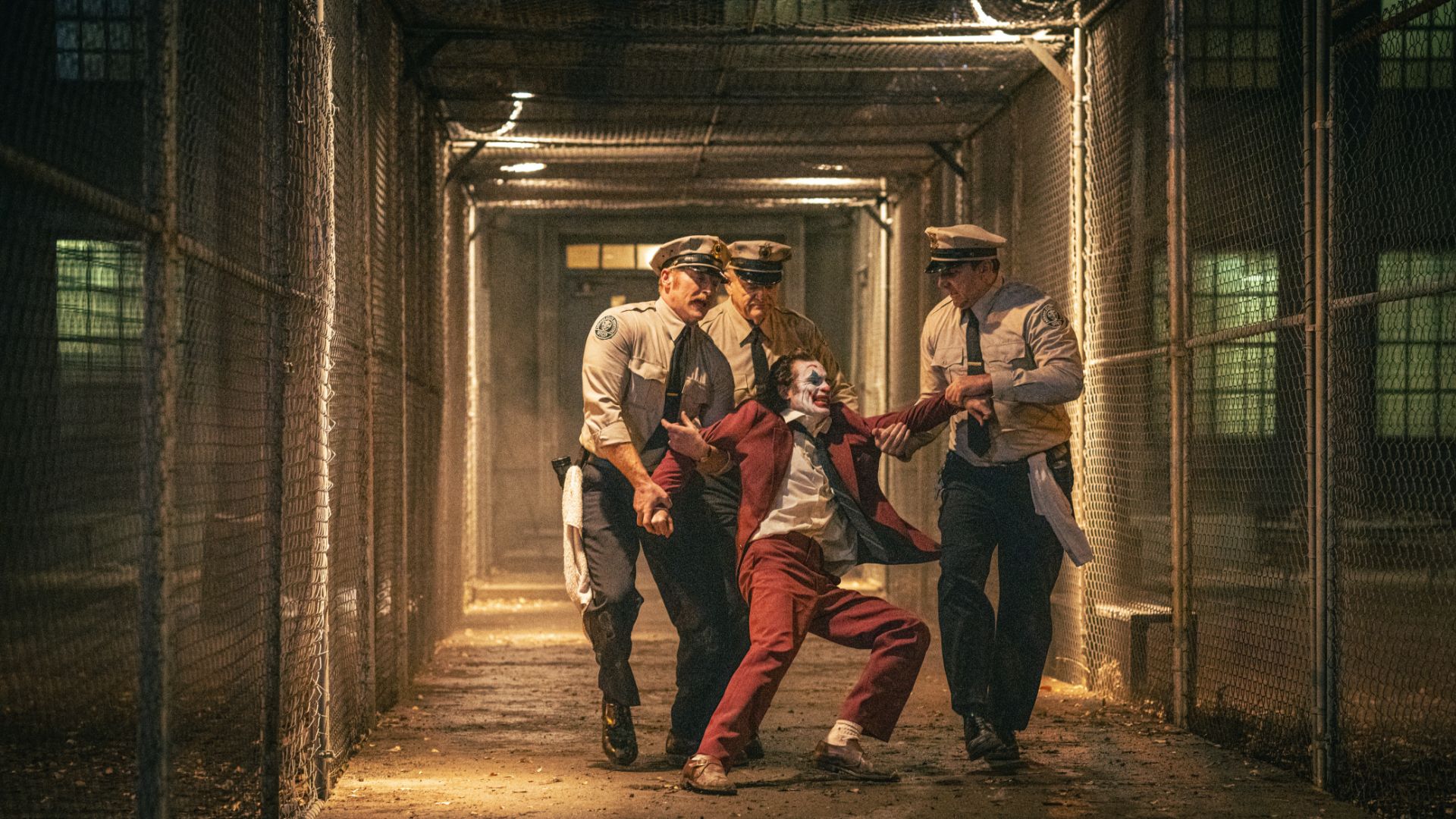
The inmate who stabs Arthur becomes a more classic Joker as we know him from the comics. While it’s blurred in the background, we see him carving his face up with the knife he used to stab Arthur before he lets out a deep laugh.
For more on the movie, check out our Joker: Folie à Deux review for our verdict, or settle in for a marathon with our guide on watching the DC movies in order. Then dive into our explainer on the Joker 2 ending and whether there's a Joker 2 post-credits scene.







